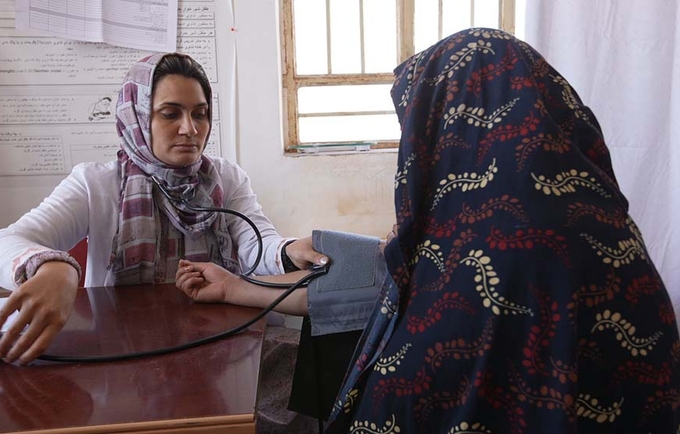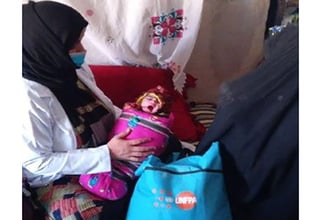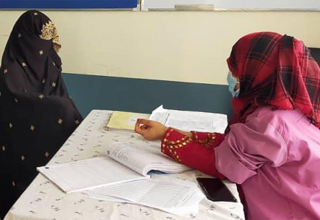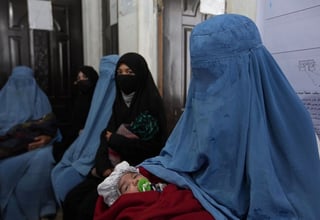Uruzgan, Afghanistan – “My sister-in-law was brought to the Family Health House (FHH) with a donkey as the family had no means of transportation.” Badamgula said, recalling how her family learned about the existence of health services in the nearby village when her sister-in-law delivered a baby.
“It was a different experience to deliver the baby out home at midnight,” said Badamgula, whose sister-in-law had her first two childbirths at home assisted by a local unskilled birth attendant.
Although it took one hour to bring the patient to the FHH via a donkey, it was still a pleasant experience for the family.
Badamgula regrets the times when families lost wives, mothers and daughters during unsafe deliveries at home. Whenever a woman was giving birth to a child, the villagers had to go over the hills and valleys to reach the district hospital. Even so, they use donkeys as the most feasible transportation option.
“Even the cold and winter storm at midnight worsened the condition of my sister-in-law, but there was still hope as my family counted a lot to receive support here,” she recalled.
The family had to wait for a few hours until the patient gave birth and by the next morning, the sister-in-law walked out of the health facility with a son in her arms; both healthy and sound.
But this time, when Badamgula visited the FHH, she sought another support. Her one-year-old son is malnourished. The baby has been skinny, pale, and crying for the better part of the time he is awake.
“I didn’t have enough milk to feed my child. Also, I gave birth to another child the previous year. So, it has been very difficult for me to feed the elder one and take care of him,” Badamgula explains the reason for visiting the FHH to receive medical services. The FHH is supported by UNFPA with funding from the EU Humanitarian Aid.
The midwife at the FHH found Badamgula’s son severely malnourished and provided him with primary medical assistance and nutrition supplies.
The FHH provides a package of life-saving health services to women, girls and children who have difficult or no access to any other health services. Integrating nutrition services into the FHHs has allowed local women to receive more support through these facilities.




